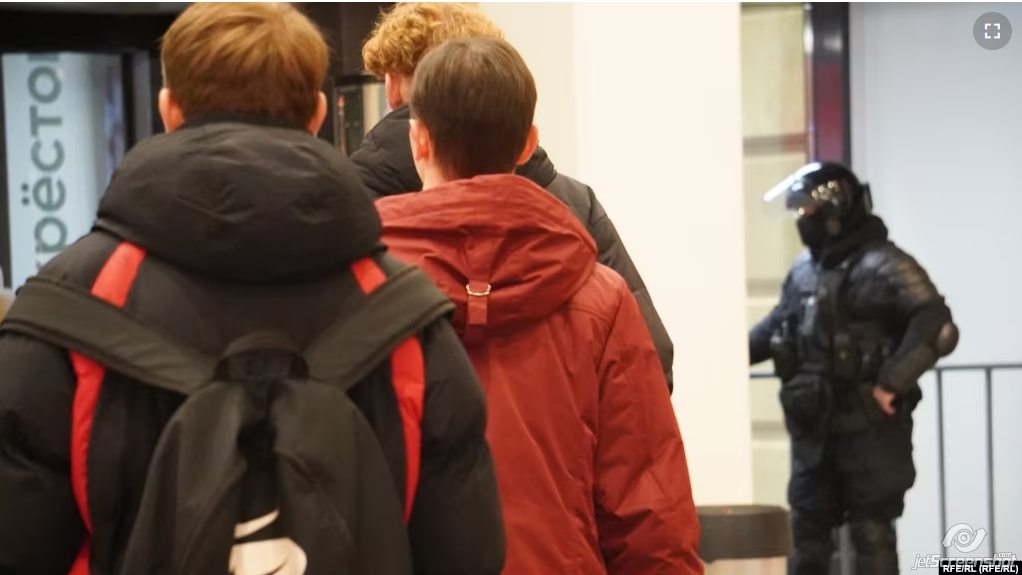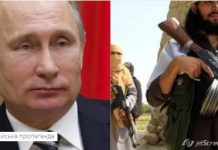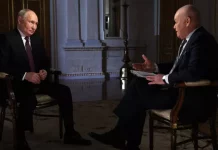By Kseniya Kirillova, for CEPA
Are mobsters and street thugs role models, or are they terrible models for the new Russia? Cultural critics and censors can’t quite decide.
State Duma deputy Nina Ostanina called for a ban on the broadcast of the TV series Word of a Homeboy, which is rapidly gaining popularity in Russia, and which portrays the youth gangs that roamed Kazan in Tatarstan in the late 1980s.
Ostanina, the head of the committee on family protection, fatherhood, motherhood, and childhood, has already filed two complaints against the series — one with the Investigative Committee and another with Roskomnadzor, the federal communications regulator. She expressed concerns that teenagers may begin to romanticize crime, leading to instances of murder and suicide.
Some critics and the series director argue that the production truthfully depicts the reality of the late Soviet era, including its horrors. Interestingly, a significant portion of the “patriotic” elite has come to the defense of the series. For instance, State Duma deputy and well-known propagandist Yevgeny Popov stated that the series was a fair depiction and that he would do everything “to ensure that such dark times never return.”
On the official Russian website “Ukraine.ru,” a lengthy article asserts that Word of a Homeboy has become a stellar manifestation of Russian soft power in Ukraine, gaining popularity despite the ongoing war. Russian military analysts also support the series, suggesting that similarly popular Russian series about criminals like Brigada, Brother, Boomer, Gangster Petersburg, and others could likewise be banned if the new series becomes a victim of censorship.
But this is not a tale of Russians unifying around the right to free speech and to resist censorship. As so often in Putin’s Russia, it illustrates something much darker.
“For many individuals from the 70s and 80s, the Word of a Homeboy has transformed into the word of an officer. Yesterday’s heroes of street gangs stormed Panjshir [in Afghanistan], took Grozny, and now engaged in special operations against the enemy. That’s why the drama about Kazan youth is so popular — older comrades see themselves in the characters on the screen,” notes military sources.
Indeed, the romanticization of the criminal underworld has become one of the foundations of the modern image of the “Russian hero,” as depicted by Russian propaganda. Films created in the 1990s that reflected a challenging era are now presented as an informal anthem of the “Russian national idea” and a profound philosophy revealing the mysteries of the enigmatic “Russian soul.”
Interestingly, religious advocates for Russkiy Mir (Russian world) have become the primary propagandists of the gangster romantic genre.
The 2012 film The Nightingale Bandit is particularly illustrative, authored by one of the best-known propagandists of the war in Ukraine in 2014, former priest Ivan Okhlobystin. The characters in the film form a gang, engage in murders, and burn down entire villages while delving into philosophical and religious topics. Okhlobystin himself referred to his character as an embodiment of the “Russian national character,” and critics enthusiastically wrote about the “element of the Russian rebellion” in the film.
A year and a half later, the creator of The Nightingale Bandit actively traveled to Donbas, expressing his desire to “fight for Novorossiya,” in an area where the scenes depicted in his film unfolded in reality, with the same cruelty, lawlessness, and religious justification as on screen. The image of the “ordinary Russian person,” destroying everything in the pursuit of justice and shedding rivers of blood, was in high demand for propaganda to justify “Russian volunteers” fighting in Donbas.
And yet it is religious preachers who are most fervently calling for the ban on the new series Word of a Homeboy. Some claim that its broadcast is nothing more than part of the “Zionist plan” to destroy Russian spiritual values and reduce the global population. In opposition to the plan, Orthodox propagandists advise actively participating in the war in Ukraine and involving children in “aiding the front” from an early age.
If it seems that nationalist religious groups are contradicting themselves, that’s because they are. The level of obscurantism and censorship has increased so much over the past 10 years that church propagandists have begun to condemn the same things that they previously supported.
The conflict between “traditional values” and bandit romantic represents just one of the clashes between and within the various factions of Russian propaganda. Even before the full-scale invasion of Ukraine, the contributors to the Orthodox channel “Tsargrad” actively criticized state-funded Russian cinema, denouncing it as “vulgar and empty junk.” They attributed this situation to corruption and cronyism within the Ministry of Culture and the Film Foundation.
However, the creation of vulgar and empty content is not accidental. Modern Russia is a highly repressive state and cultural expression is limited.
These ugly and bloody TV programs and movies are more likely tolerated by the authorities to divert attention from the war and erode moral barriers.
For instance, on New Year’s Eve of 2023, major Russian channels featured a mix of glamor, lowbrow jokes, and military propaganda, seemingly trying to project a “festive and homelike” image of aggression among Russians. The Kremlin’s investments in producing glossy magazines also suggest an effort to portray a comfortable and “bohemian” image of Moscow, maintaining a familiar level of entertainment for both affluent and less privileged segments of society.
Simultaneously, as the war began, Russian Prime Minister Mikhail Mishustin emphasized the need for high-quality patriotic films. Attacks on various “subversive” projects, deemed “contrary to Russian traditional values,” have intensified.
Deputies increasingly call for the verification of compliance with Russian legislation for new films, and the Ministry of Culture and Roskomnadzor have become more proactive in banning and blocking them. According to estimates by independent journalists, the “League of Safe Internet,” led by Yekaterina Mizulina, filed 3,915 reports on online content since the beginning of 2022, addressing issues such as “extremism” in song lyrics and even search queries.
It appears that Russian authorities are encountering growing difficulties in reconciling different factions within their own propagandist circles — religious radicals and enthusiasts of bandit romantic, “ideological moralists,” and “glamorous cynics.”
Each group is deemed necessary in fostering a tolerant societal attitude toward the war, but maintaining tolerance among these factions is becoming increasingly challenging.
By Kseniya Kirillova, for CEPA
Kseniya Kirillova is an analyst focused on Russian society, mentality, propaganda, and foreign policy. The author of numerous articles for the Jamestown Foundation, she has also written for the Atlantic Council, Stratfor, and others.





